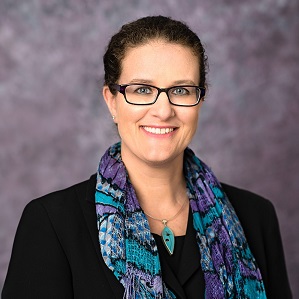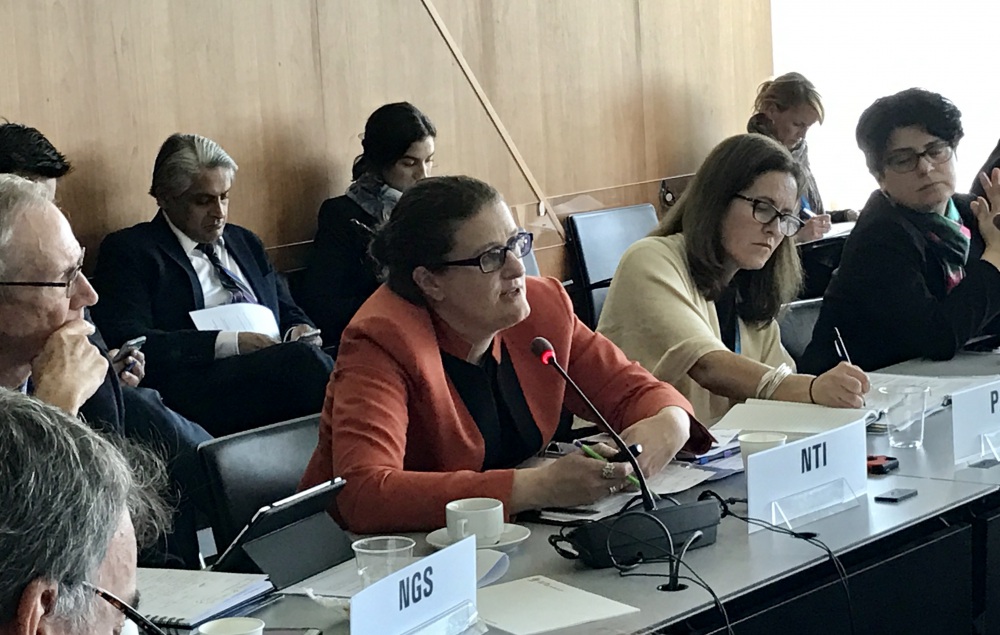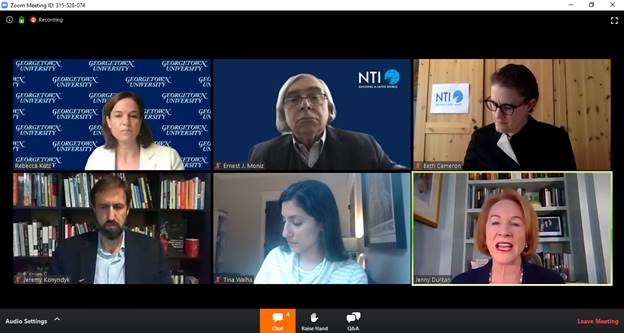
Atomic Pulse
70th World Health Assembly: Election of New Director General During Uncertain Times

The Power of Change. From May 22- 31,
2017, NTI participated in the 70th World Health Assembly (WHA) as it
met in Geneva to
debate and decide on topics ranging from continued implementation of much-needed
World Health Organization (WHO) reform in the wake of the 2014-2016 Ebola
epidemic to the growing need for creative solutions to build and sustain
country financing for outbreak preparedness and response. The most
significant outcome of the 70th WHA was the election of a new
Director General – Dr. Tedros Ghebreyesus of Ethiopia. The
election of Dr. Tedros, who previously served as both the Minister of Health
and the Minister of Foreign Affairs in his home country, encompasses many
firsts. Among them: He is the first person elected WHO Director General under new
and open election proceedings in which the health minsters of 186 countries
voted by secret ballot, and he is the first Director General from Africa. Dr. Tedros will take on his new role when Dr.
Margaret Chan, who has served two consecutive 5-year terms in the WHO Director
General post, steps down on June 30. He
will inherit a WHO beleaguered by the slow response to Ebola in 2014, a large
bureaucracy, and an ongoing major reform effort. With the ongoing calls for WHO
to “reform,” Director General-elect Tedros also will need to heed to the call
for WHO to “perform” – and perform efficiently – which will require funding and
staffing focused on WHO’s core activities, such as the global response to
outbreaks of international import.
Amid controversy, some consensus. Despite usual debates during the WHA on issues
that often separate low-, middle-, and high-income countries – such as access
to medicines, assessed contributions, and the relative importance of different
types of health threats facing different regions of the world – one growing
consensus emerged. Last week, during focused meetings of the Global Health Security Agenda (GHSA)
Steering Group and the Joint External
Evaluation Alliance, like-minded countries agreed
to focus more attention on next steps to convene Ministers of Finance, as well
as health and development funders and private sector representatives, to
sustainably finance coordinated, measurable, cross-sectoral plans for national
preparedness. An unsung achievement of this year’s WHA, 42 countries have now
undergone transparent Joint External
Evaluations (JEE) – peer reviews of national
capacity to prevent, detect, and respond to epidemic threats – and more than 20
additional countries have signed up. The measurable targets outlined in the JEE
grew out of the GHSA, a community of nearly 60 countries launched in 2014 under
the leadership of President Obama and dedicated to accelerating national,
regional, and global capacity to prevent, detect, and rapidly respond to
infectious disease threats. Such success
in country transparency and cooperation is unprecedented in the life of the
International Health Regulations and will only continue if countries are able
to quickly develop and finance corresponding national plans to fill identified
gaps. Assigning further urgency to this issue, on May 25, the World
Bank rolled out ambitious, long-awaited recommendations to achieve pandemic
preparedness financing – in strong support of all
countries undergoing JEE and financing national plans for preparedness, and the
development of health security indices and other tools to incentivize new
commitments and hold countries accountable for those commitments already made. To
bolster these vital efforts, NTI is developing a Global Health
Security Index, in partnership with the Johns Hopkins
University Center for Health Security and the Economist Intelligence Unit. This October, when Ministers meet in
Kampala, Uganda for the fourth-annual GHSA High Level Event, they should call
on all countries to publish priced out, financed, multi-sectoral national plans
for pandemic preparedness within 2 years’ time.
Paradox: U.S. Commitments
to Global Health Security. During the WHA, the United States
firmly announced its continued support for the GHSA
and its commitment to advancing that agenda. However, while supportive
statements from Secretary Tom Price and other U.S. officials were well-received
by partner countries concerned about waning U.S. leadership, President Trump’s
Fiscal Year 2018 budget
proposes to significantly slash the very appropriations that advance health
security, save lives, reduce the threat of bioterrorism, and keep America – and
the rest of the world – safe and secure from biological threats. For
example, the proposed budget would cut core global health security programs at
the U.S. Centers for
Disease Control and Prevention and the U.S. Agency for
International Development, including funding for deployed
disease detectives focused on finding and stopping outbreaks at the source.
Much like other elements of our national defense, our national biodefense
relies on experts in the field, who can assist host nations in quickly
identifying and snuffing out outbreaks – before they flare into epidemics that
spread and threaten lives at home and abroad. These are the forward-deployed “smoke detectors” of our national disease
surveillance system, and if these experts are called home in 2018, we will be
inarguably less safe. We also need
to maintain key U.S. efforts to bolster biosecurity and biosurveillance,
including the Department of
Defense Cooperative Threat Reduction, Cooperative Biological Engagement Program
and the State Department Biosecurity
Engagement Program. These U.S. efforts work
together toward common targets to help prevent bioterrorism, detect threats
early, and respond quickly and effectively. Similarly, these investments cost a
fraction of the billions we invest for outbreak response when a disease threat
is not rapidly detected. Finally, countries with weak health systems, subjected
to major outbreaks, are at risk of political collapse – inviting further
instability for regions already battling terrorism and fighting to maintain
democratic institutions.
Toward Greater Accountability
for Stopping Outbreaks at the Source. While progress has been made,
the WHA showed that much work remains to cement lessons learned from Ebola and
to ultimately achieve the GHSA’s vision of a world safe and secure from infectious
disease threats. One starting place is for global leaders to recognize that we
are less safe and secure when we cycle through moments of sustained funding
(“panic”) and severe cuts (“neglect”). Instead,
policymakers should aspire to achieve a state of constant vigilance, where
health security and biosecurity are consistently treated as a national,
regional, and global security priority on par with other transnational threats
like cybersecurity, counterterrorism, and climate change. Similarly, we must
hold ourselves and our partners accountable for the commitments made to assist
others. The United States
has made major commitments to the GHSA, including $1 billion in Ebola emergency
resources and an agreement to assist 31 countries and the Caribbean Community
to achieve specific, measurable targets. This commitment must
continue, and core funding for the U.S. Government budgets that support this
work must be sustained and grown. Additionally, other partners, including the G-7 leaders
and some G-20
and Nordic countries,
have also made major commitments to assist at-risk countries, and these
commitments should be more specifically outlined, tracked, and delivered. Such commitment accountability is not only
important, it’s essential – not only for donors, but also for host countries,
the private sector, the World Bank, and the public. In this fight, we literally
cannot afford to fail.
Stay Informed
Sign up for our newsletter to get the latest on nuclear and biological threats.
More on Atomic Pulse

The Global Health Security Index: Real-World Examples of Driving Progress
Examples from around the world of the Global Health Security Index in-use.

NTI Seminar: Dr. Margaret Hamburg on COVID-19 Vaccines, Therapeutics, and the Biosecurity Nexus
NTI Seminar: Dr. Margaret Hamburg on COVID-19 Vaccines, Therapeutics, and the Biosecurity Nexus

NTI I bio works with others to develop local resource for COVID-19 response
NTI I bio works with others to develop local resource for COVID-19 response
